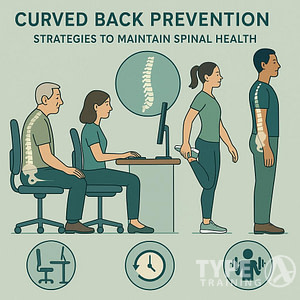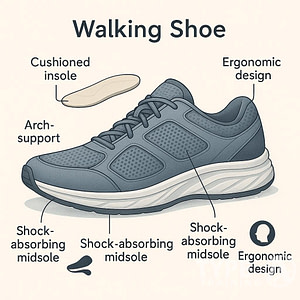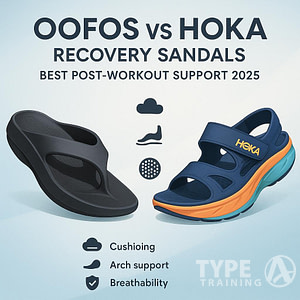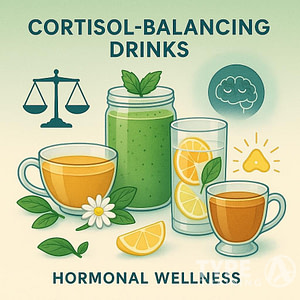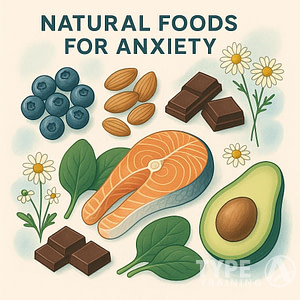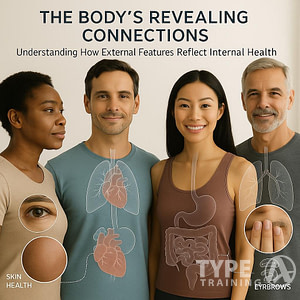Both cold showers and hot showers offer distinct benefits, making the choice between them dependent on your needs and preferences.
Cold showers can help reduce inflammation, relieve pain, and boost circulation, making them a great option for post-workout recovery. They can also lower stress levels and reduce muscle soreness, making you feel more alert and refreshed.
Hot showers, on the other hand, are excellent for relaxation, winding down, and fighting off illness. They can open airways and pores, which helps to clear the nasal passage and improve skin health. If you have muscle tension or need to relax at the end of the day, hot showers might be the better choice.
Popular posts:
For a soothing, end-of-day relaxation, hot showers are ideal, while cold showers serve well for an invigorating start and muscle recovery. To explore more about the differences and benefits, visit Cold Shower vs. Hot Shower: Healthline and Reasons to Choose a Shower Type: WebMD.
Understanding the Basics of Cold and Hot Showers
Cold and hot showers both impact the body in unique ways. Their history and how they are used today provide a deeper understanding of the benefits each offers.
Temperature Effects on the Body
Cold showers typically have a temperature below 70°F. They help reduce inflammation and muscle soreness, and improve circulation. Additionally, they can increase alertness by stimulating the body’s adrenaline production and endorphin levels.
Hot showers usually range from 95°F to 105°F. They aid in relaxation, soothe tense muscles, and open pores and airways. A hot shower is beneficial for those with respiratory issues, making it easier to breathe.
Alternating between hot and cold showers, known as contrast hydrotherapy, can offer combined benefits. This practice can enhance detoxification and improve overall circulatory health.
Historical Perspective and Current Trends
The use of hydrotherapy dates back to ancient times. Dr. Sebastian Kneipp, a 19th-century Bavarian priest, popularized hydrotherapy for its therapeutic benefits. His methods, known as Kneipp Cure, involved systematic use of hot and cold water to treat various ailments.
Today, cold showers are trending in wellness communities for their benefits in boosting mental health and enhancing recovery post-exercise. Hot showers remain a popular choice for their relaxing properties and are often recommended before bed to improve sleep quality.
Both cold and hot showers have their place in modern wellness practices, each offering distinct advantages based on individual needs and preferences.
Physical and Mental Health Impacts
Both hot and cold showers offer unique benefits for your physical and mental health.
Cold Showers for Mental Health and Alertness
Cold showers are known to improve mental health by stimulating the release of endorphins, which can boost your mood and reduce stress. Studies suggest that cold showers can enhance alertness by increasing blood flow to the brain and activating the sympathetic nervous system.
People dealing with low mood may find relief in the stimulating effects of cold showers. Regular exposure to cold water has been linked to improved mental clarity and reduced symptoms of depression. For individuals seeking a quick way to wake up and stay focused, cold showers can be highly beneficial.
Cold showers have also been reported to boost overall brain health, leading to increased energy levels and better mental performance.
Hot Showers for Muscle Relaxation and Sleep Improvement
Hot showers are particularly effective for relaxing muscles and easing tension. The heat helps to dilate blood vessels, promoting better blood circulation and aiding in muscle recovery. This makes hot showers an ideal choice after a workout or a long, stressful day.
Taking a hot shower before bedtime can significantly improve your sleep quality. The warmth increases your core body temperature, and the subsequent drop in temperature can help you fall asleep faster. For those suffering from insomnia or other sleep disorders, incorporating a hot shower into your nightly routine may be beneficial.
Hot showers also help in the release of tension and stress, contributing to a more relaxed state of mind and better sleep overall.
Comparative Analysis of Skin and Hair Health
The impact of hot and cold showers on skin and hair health is significant but varies.
- Cold Showers: Cold water tightens the pores and scalp, reducing the risk of clogged pores and dandruff. This preserves natural oils, leading to healthier skin and shinier hair.
- Hot Showers: While hot showers can open pores and aid in deep cleaning, they can strip the skin and hair of natural oils, potentially causing dryness.
| Aspect | Cold Showers | Hot Showers |
|---|---|---|
| Mental Health | Reduces stress, boosts alertness | Eases tension, promotes relaxation |
| Muscle Relaxation | Less direct impact | Effective for muscle relaxation |
| Skin & Hair Health | Preserves natural oils | May cause dryness and stripping of oils |
| Sleep Improvement | Improves alertness | Enhances sleep quality |
Therapeutic Uses
Both cold and hot showers can serve therapeutic purposes by helping to mitigate a variety of symptoms. Cold showers are effective in reducing inflammation and boosting mood, while hot showers can alleviate respiratory symptoms and aid in relaxation.
Cold Showers and Inflammation Reduction
Cold showers are known for their anti-inflammatory properties. The cold water stimulates blood circulation and reduces inflammation by constricting blood vessels. This can be particularly beneficial for people suffering from conditions such as arthritis or post-exercise muscle soreness. Cold showers also help to reduce pain and swelling in joints.
Exposing your body to cold water can aid in quicker recovery from intense workouts by reducing muscle damage. Improved blood flow can also support the immune system, enhancing your body’s natural healing processes.
Hot Showers and Respiratory Relief
Hot showers can be a remedy for respiratory conditions, such as colds or allergies. The steam generated from hot water can help open up nasal passages and ease congestion. This is particularly useful for individuals suffering from lung conditions like asthma or bronchitis.
Inhaling steam from a hot shower can loosen mucus and reduce inflammation in the airways, making it easier to breathe. This practice may also improve overall respiratory function and help fight infections by clearing out toxins from your respiratory system.
Cold Showers When Sick
When you’re sick, cold showers can provide a range of benefits. Taking a cold shower can help reduce fever, alleviate aches and pains, and boost your mood. Cold water constricts blood vessels, which can reduce swelling and inflammation, thus offering pain relief.
Cold showers may also enhance circulation. Improved blood flow can accelerate the body’s natural healing process. This can be especially helpful in fighting off infections and reducing muscle soreness that often accompanies colds and flu.
Tailored Hydrotherapy for Specific Conditions
Hydrotherapy can be tailored to suit specific health needs. For instance, cold showers are effective for reducing inflammation and relieving pain in conditions such as arthritis. On the other hand, hot showers can be beneficial for easing respiratory symptoms and improving circulation.
Consider alternating between hot and cold showers. This practice, known as contrast hydrotherapy, can optimize both inflammation reduction and respiratory relief. It’s a balanced approach to leveraging the benefits of both temperatures tailored to your specific needs.
| Condition | Recommended Hydrotherapy |
|---|---|
| Arthritis | Cold Showers |
| Respiratory Symptoms | Hot Showers |
| Muscle Soreness | Cold Showers |
| Immune System Support | Cold Showers |
Effects on Circulatory and Cardiovascular Systems
Cold showers and hot showers affect your circulatory and cardiovascular systems in different ways. While cold showers can enhance blood flow and improve immune response, hot showers can influence blood pressure and overall heart health.
Hot Showers, Blood Pressure , and Heart Health
Hot showers have a different impact on your
For individuals with cardiovascular diseases, such as hypertension, this can be particularly beneficial. The heat from a hot shower can also relax your body and mind, which further contributes to lower
Hot showers can improve cardiovascular health by easing muscle tension and improving sleep quality. Better sleep contributes to a healthier heart, reducing the risks associated with heart disease and arrhythmia.
| Aspect | Cold Showers | Hot Showers |
|---|---|---|
| Circulation | Improves by constriction and dilation of vessels | Eases flow by dilating vessels |
| Blood Pressure | May initially increase, followed by regulation | Generally decreases due to vessel relaxation |
| Immune System | Boosts by increasing white blood cells | Not directly impacted |
| Cardiovascular Health | Reduces inflammation, benefits cardiovascular health | Eases muscle tension, improves sleep quality |
Fitness and Recovery After Exercise
Understanding the effects of cold and hot showers on post-workout recovery can help you make an informed decision. Below, we’ll explore the benefits of cold showers for athletes, the impact of cold showers after working out, and the advantages of contrast showers for enhanced recovery.
Benefits of Cold Showers for Athletes
Cold showers can be particularly beneficial for athletes. Cold water immersion helps constrict blood vessels and reduce swelling. This can significantly alleviate muscle soreness.
- Reduced Muscle Soreness: Cold water helps soothe sore muscles by reducing inflammation.
- Swelling Reduction: It helps limit swelling that may occur after high-intensity workouts.
- Faster Recovery: Athletes often experience quicker muscle recovery due to decreased metabolic activity, aiding quicker workout recovery.
These benefits make cold showers a popular choice among those who engage in intense physical activities.
Cold Showers After Working Out
Taking a cold shower after exercise offers multiple recovery benefits. The immediate drop in temperature can cause an ice bath-like effect, providing relief from muscle fatigue.
- Temperature Drop: Quickly cools down the body after intensive exercises.
- Muscle Fatigue Relief: Cold showers help reduce muscle fatigue, providing a burst of rejuvenation.
- Circulation Improvement: Cold showers stimulate circulation to the deeper tissues, enhancing recovery.
This makes cold showers an effective post-workout routine to rejuvenate your body.
Contrast Showers for Enhanced Recovery
Contrast showers, which alternate between hot and cold water, can improve recovery after tough workouts. Alternating temperatures can provide the benefits of both hot and cold showers.
Benefits:
- Enhanced Circulation: Hot water promotes blood flow, while cold water constricts vessels, improving overall circulation.
- Muscle Relaxation and Tension Relief: The heat helps in muscle relaxation, and the cold reduces tension and aches.
- Optimal Recovery: Combines the pain-relief benefits of cold water with the therapeutic properties of hot water.
| Benefit | Cold Shower | Hot Shower | Contrast Shower |
|---|---|---|---|
| Muscle Soreness | Yes (reduces inflammation) | No | Yes (combines cold and hot benefits) |
| Swelling Reduction | Yes (limits swelling) | No | Yes |
| Circulation Boost | Yes (cold induces rapid blood flow upon leaving shower) | Yes (heat improves circulation) | Yes |
| Relaxation | No | Yes | Yes |
Frequently Asked Questions
This section will address common questions about the health benefits and potential drawbacks of taking hot and cold showers. You’ll find specific insights on the impacts of shower temperature on health and cleanliness.
What are the potential health risks of taking cold showers?
Cold showers can pose risks for individuals with certain health conditions, like cardiovascular issues. The sudden drop in temperature may trigger a stress response, leading to increased heart rate and
What are the proven benefits of taking warmer showers?
Warmer showers can relieve muscle tension, improve sleep, and alleviate respiratory symptoms such as congestion. They also relax the body, making them an excellent choice before bedtime. Warm water opens pores, aiding in deep skin cleansing and promoting an overall sense of relaxation.
Should you avoid hot showers for any specific health reasons?
You should avoid hot showers if you have certain skin conditions like eczema or rosacea, as hot water can exacerbate dryness and irritation. Hot showers may also negatively impact those with existing cardiovascular conditions by causing a sudden dilation of blood vessels, which can lead to a drop in
Is it more beneficial to take a hot or cold shower after a workout?
A cold shower is often more beneficial after a workout due to its ability to reduce muscle inflammation and soreness. Cold showers help in faster recovery by numbing nerve endings and lowering the skin temperature. In contrast, a hot shower can help to relax muscles post-exercise, but it may not be as effective in reducing soreness.
How do cold showers impact muscle recovery after exercise?
Cold showers aid muscle recovery by reducing inflammation and soreness through vasoconstriction, which decreases blood flow to the muscles. This process helps flush out lactic acid build-up. Cold water also numbs the affected areas, providing temporary pain relief and promoting faster recovery after strenuous physical activity.
Does water temperature affect the cleanliness level of a shower?
Water temperature does influence cleanliness. Hot water opens pores and helps remove dirt, oil, and bacteria more effectively.
Cold water, on the other hand, can tighten pores and retain skin’s natural oils. However, it may not cleanse as thoroughly as warmer water.
Using a balanced temperature ensures effective cleansing without stripping the skin’s natural moisture.








